My dear friends in college . . . and beyond,
Why writer’s block now? I’m rarely at a loss for words. Usually when I write, it’s not getting started that’s my problem; it’s wrapping things up. So, I’ve learned all the tricks of the trade for those of us who suffer from verbosity. I’ll whittle away at the margins. I’ll shrink the font size. I’ll edit out just enough words and phrases so that the letter or the article or whatever I am writing fits – barely – into the allotted space. Or, when all else fails, I’ll ask a trusted friend to edit my writing and “make it fit.”
Today, however I find myself staring at a blank computer screen, making more false starts than I care to admit. In fact, I just deleted the first two paragraphs of my third attempt at this letter, muttering to myself, “No, that’s not it. That’s not something I would write at all.”
As a former English teacher, I know quite well the importance of a writer finding his or her own voice. Absent that, the words seems hollow; inauthentic; someone else’s, perhaps, but certainly not my own.
I’ve hit a roadblock, I think, because I have this sense that I’m supposed to write about Easter joy, but, right now, I’m not feeling much of it. My mind turns to the death of so many members – young members – of the Chaminade and Kellenberg Families, including current parents and even recent graduates. As I write this letter, one of our faculty members, Mr. Christopher Lynch, is bravely battling cancer; he was diagnosed over the February vacation. And as I look at the world around me, I am deeply dismayed by the particularly petty character of this year’s Presidential election cycle, all the while as our country faces grave threats from ISIS, from North Korea, from a looming budget deficit, and from domestic ideological and racial polarization deeper than any I have seen in many, many years.
In the midst of all this, just where is the victory of Christ? Is there any evidence at all that the world has been redeemed? Given all this tragedy and disappointment, how are we to experience Easter joy?
Maybe, I wonder, just maybe, Easter joy comes in the small signs of hope that point to the ultimate victory of Jesus Christ over sin and death.
One such sign of hope comes in the form of a book that I recently finished. In fact, I picked up the book at the suggestion of one of you guys – a Chaminade graduate from the Class of 2013. The book is entitled Tattoos on the Heart: The Power of Boundless Compassion. The book consists of scores of stories and reflections by Gregory Boyle, S.J., a Roman Catholic priest who has worked for over 25 years in the barrios of Los Angeles, ministering to a predominantly Mexican-American and African-American community. The founder of “Homeboy Industries,” Fr. Greg, or “G-Dog,” as his “homies” call him, has worked tirelessly to stem the tide of gang violence by providing young men and women with jobs; counseling services; a sense of self-worth; and, for most, the first experience in their lifetime of actually being loved.
It has by no means been a walk in the park for Fr. Greg. He has connected hundreds of young men and women, many of them former convicts, with real jobs and a new lease on life, but he has also buried over 800 “homies” lost to drugs use and gang warfare. Many of these “lost ones” had seemed to have a bright new future ahead of them, only to have a bullet or a hypodermic needle get in the way.
After one funeral,
. . . I give myself permission now, to allow this pain into some cherished,
readied place in my heart. Every homie’s death recalls all the previous
ones, and they all arrive in a rush. I’m caught off guard, as well, by the
sudden realization that Chico’s burial is my eighth in the past three weeks.
I decide to walk away from the coffin and spot a lonely tree not too
far from the crowd. I stand there by myself and welcome all the feelings
of this great loss. I cry.
Fr. Greg writes candidly about the disappointment and the heartache he experiences every day:
Are you, in the end, successful? Naturally, I find myself heartened by
Mother Teresa’s take: ‘We are not called to be successful, but faithful.’ The
distinction is helpful for me as I barricade myself against the daily dread of
setback. You need protection from the ebb and flow of three steps forward,
five steps backwards. You trip over disappointment and recalcitrance every
day, and it all becomes a muddle.
“Oh, death, where is your victory? Oh, death, where is your sting?”
“Everywhere!” we might be tempted to cry out in utter frustration.
But “the still, small voice of God” suggests otherwise, and I heard that still, small voice of God echoing on every page of Tattoos on the Heart:
At Homeboy Industries, we seek to tell each person this
truth: that they are exactly what God had in mind when God
made them – and then we watch, from this privileged place, as
people inhabit this truth. Nothing is the same again. No bullet
can pierce this; no prison walls can keep this out. And death
can’t touch it – it is just that huge.
Or elsewhere,
Fabian’s childhood was a dense mix of gangster father,
mentally ill mother, and no one ever really in their cinco sentidos –
always high, all the time. When he was ten or so, his mother was
beating him with her high heel, when he sought refuge in the closet.
She commenced to beat on Fabian’s brother, Michael, and when
his brother’s screaming stopped, Fabian peeked out of the closet and
saw that his mother had wrapped a wire hanger around his neck,
and he was turning blue. Fabian flew to her and body-slammed
and wrestled her to the ground. Consequently, no one would have
been surprised if Fabian had taken up permanent residence in some
state-run, locked-down facility.
But somehow, by a mysterious and gracious turn of some
steering wheel, Fabian found other coordinates and navigated his
way out of the treacherous waters where others perished.
In fact, Fabian went on to become a staff member of Homeboy Industries and an expert at dissipating gang violence:
I just don’t know how Fabian managed it.
With more mystery than I can explain away, Fabian locked
on to the singularity of love that melts you. It doesn’t melt who you
are, but who you are not. Turns out he wasn’t all the abuse he endured.
He was something else, astonishing and glorious.
With the dark shadow of Christ’s Crucifixion still fresh on our minds and the glory of the Resurrection overcoming that shadow with light and life, Easter is indeed a time for us to “lock on to the singularity of love that melts you. It doesn’t melt who you are, but who you are not.” Turns out we’re not all the negative baggage we carry along with us. We are something else, “astonishing and glorious.” Funny thing is, it’s true of everyone.
And that is indeed good and joyful news. Amen. Alleluia!
On behalf of all my Marianist Brothers,
Bro. Stephen Balletta, S.M.
P.S. Turns out I not only had trouble starting this letter, but wrapping it up as well.
P.S. 2 By the way, Tattoos on the Heart is the theme for our upcoming May retreat for college-age
men. We’re holding it at Founder’s Hollow, and it runs from Monday afternoon, May 23 to Wednesday afternoon, May 25. We’ll be providing transportation, or you can drive up to Founder’s on your own. For more information and to register online, follow this link: http://goo.gl/forms/WT7xGcjkx6

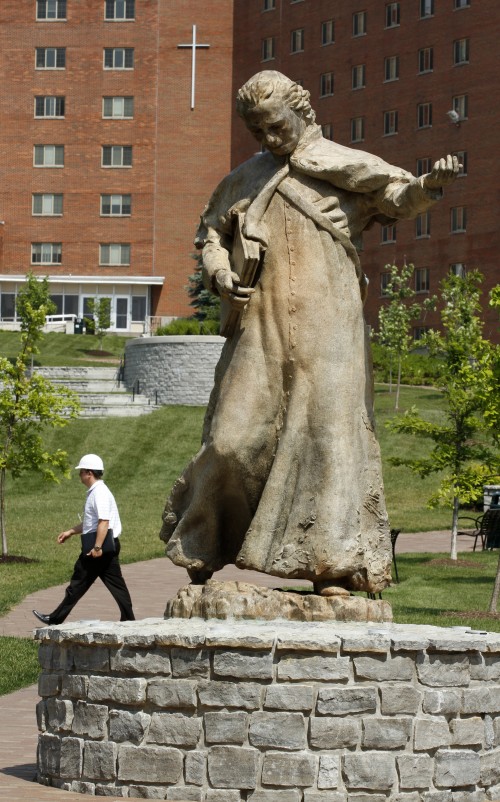
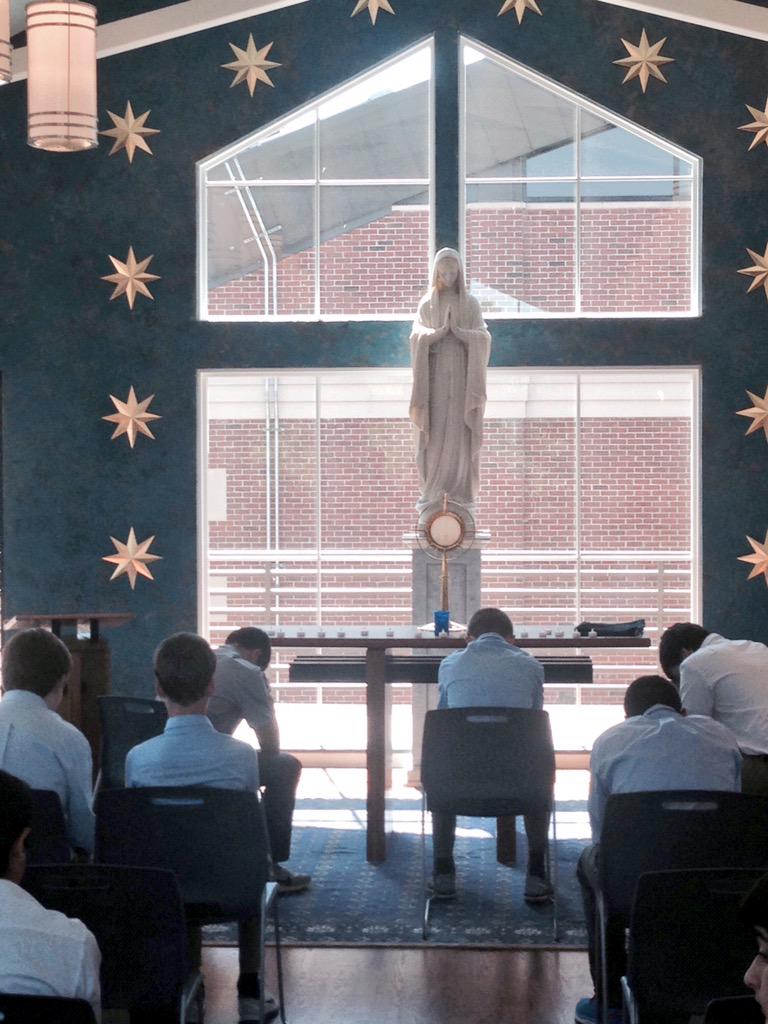

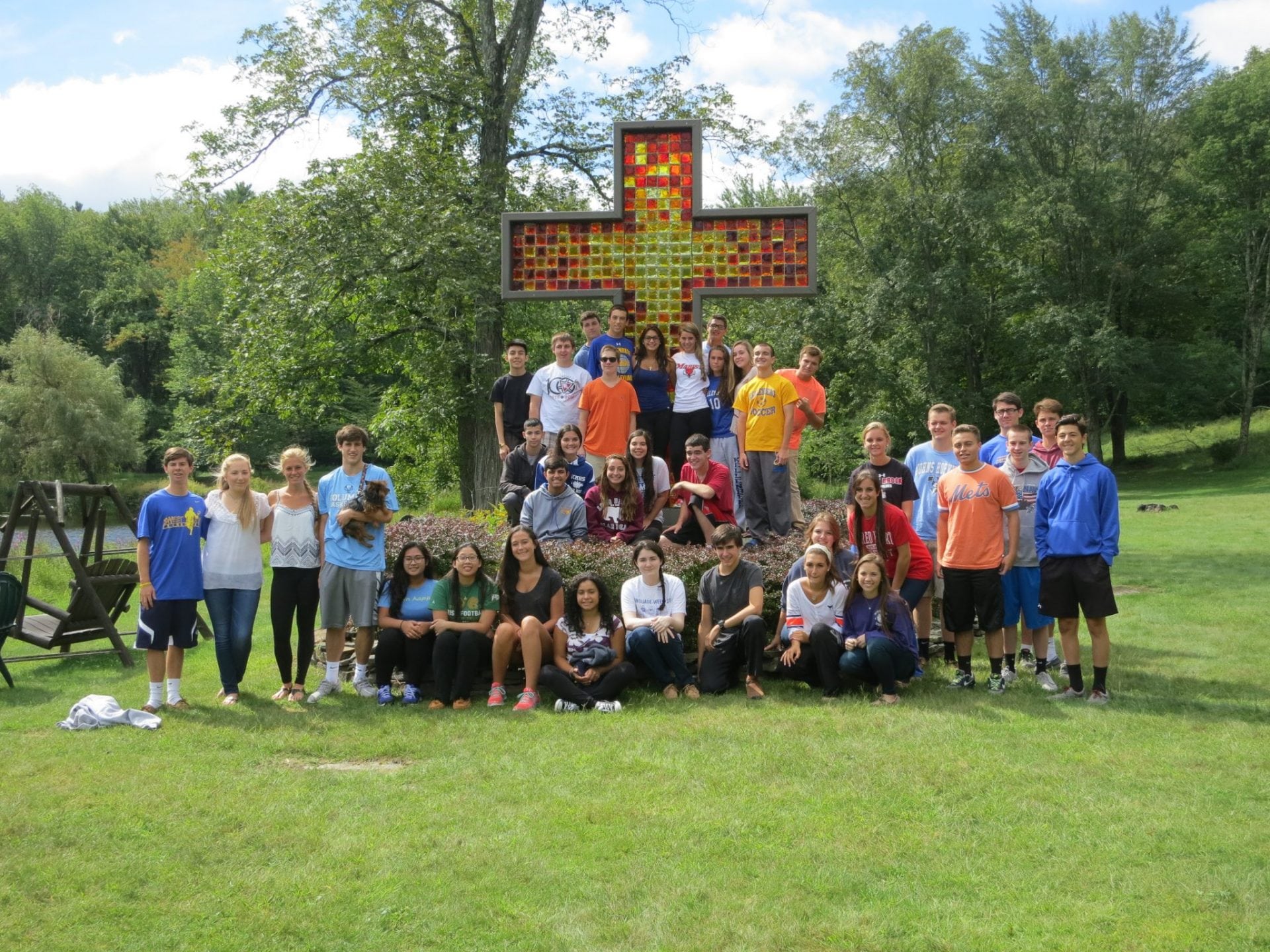
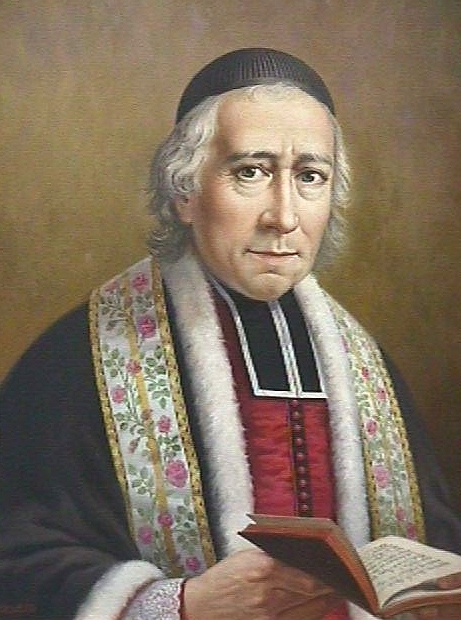



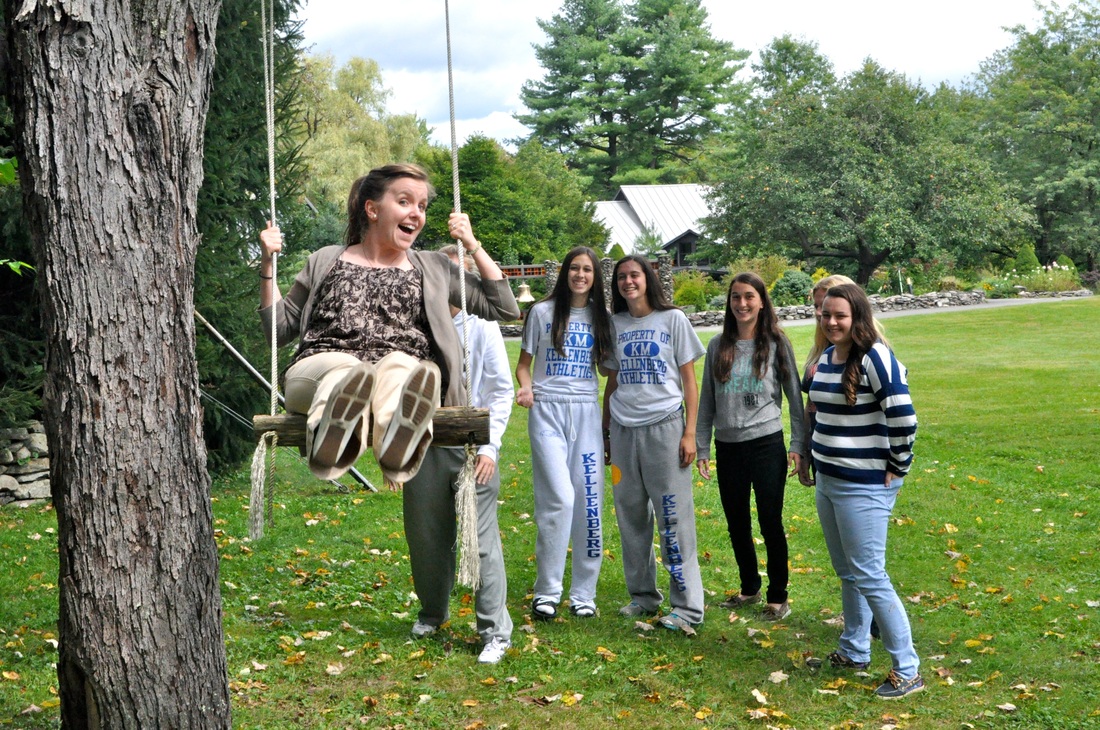




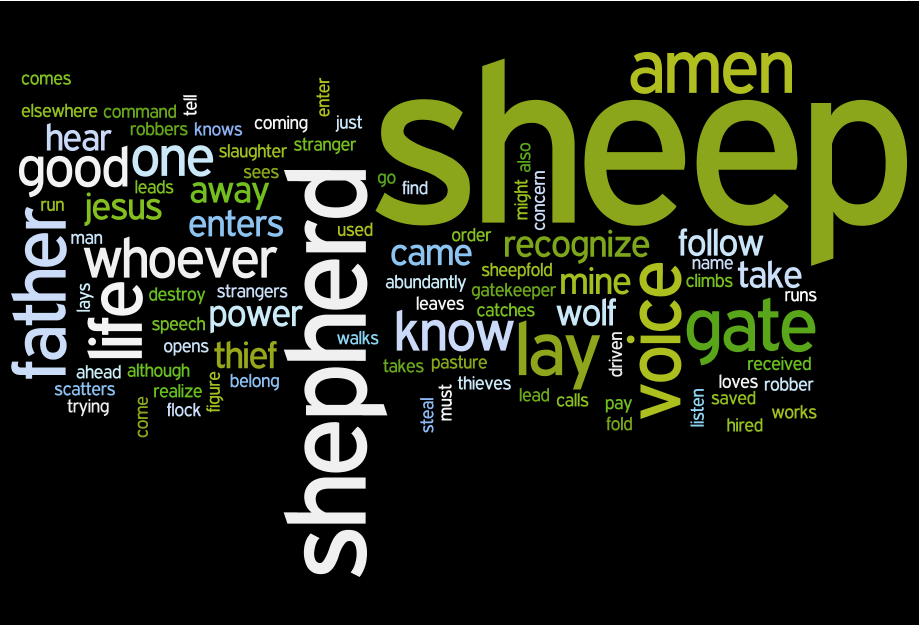






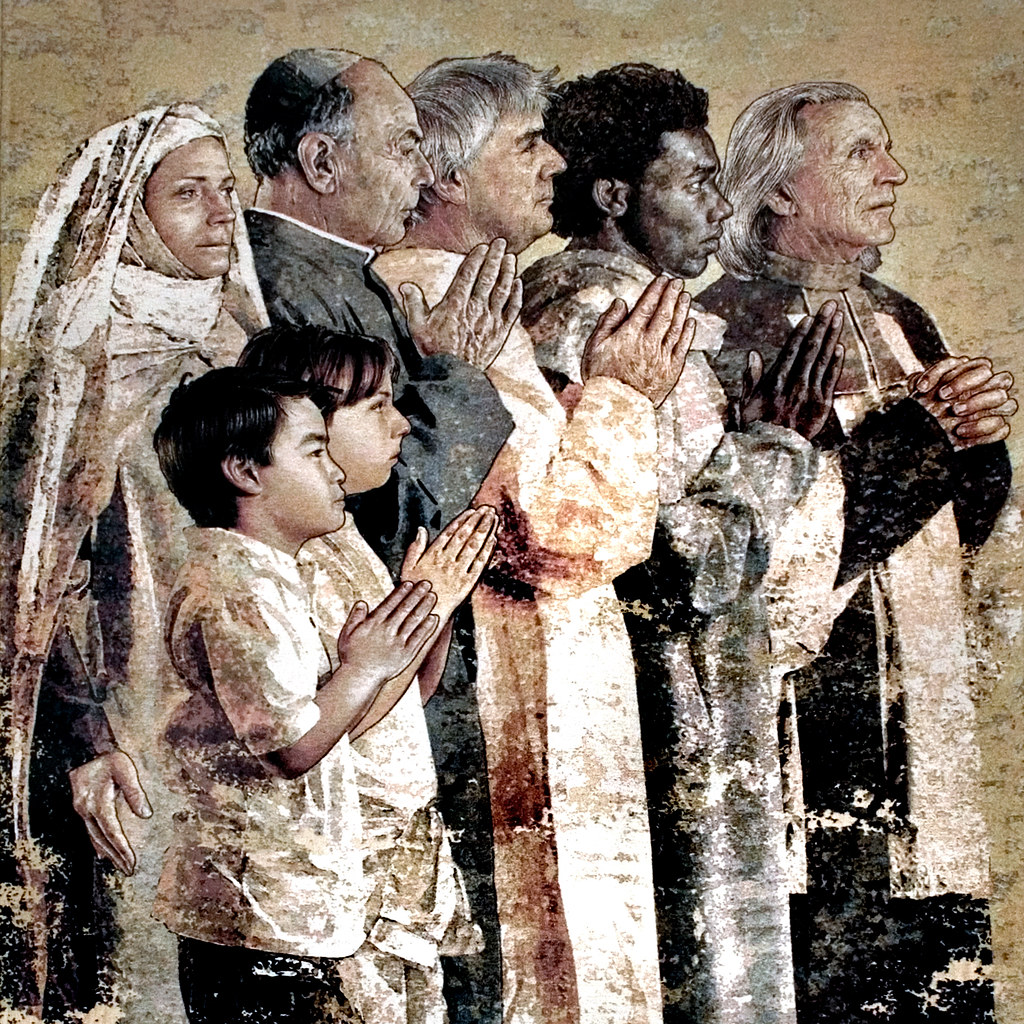
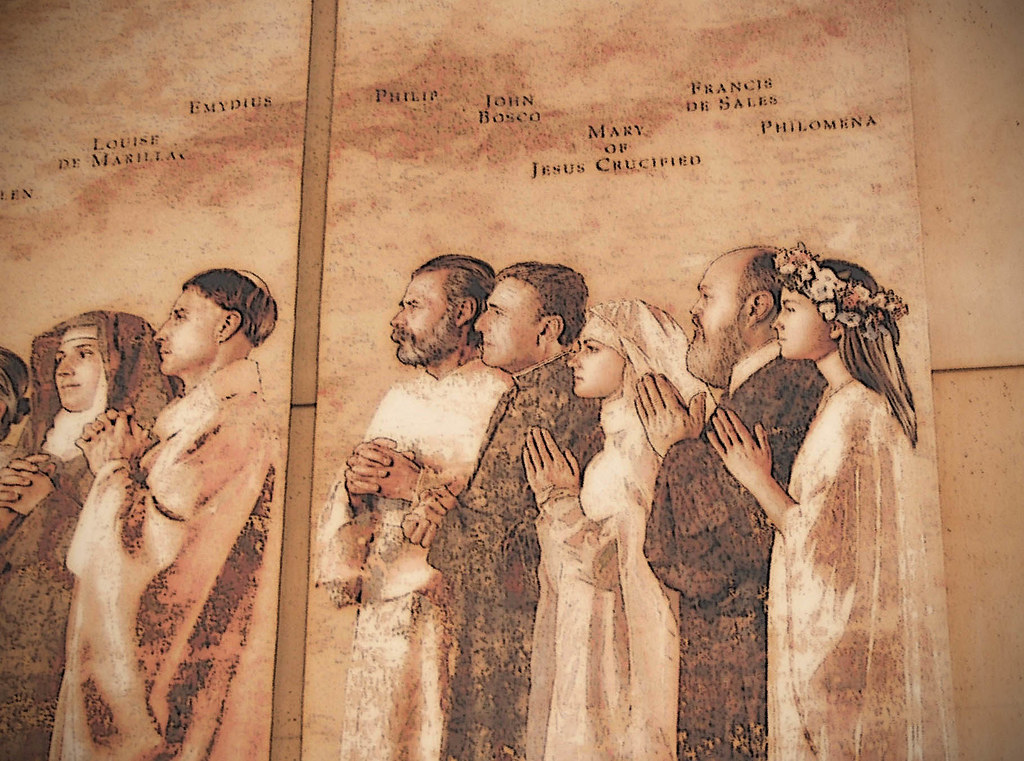 The saints of God can show us the way to the Lord. In Revelation, John has a vision of heaven, and in it he sees a great multitude from every nation standing before the throne and before the Lamb of God, robed in white, with palm branches in their hands. They cry out in a loud voice, saying, "Salvation belongs to our God who is seated on the throne, and to the Lamb!"
The saints of God can show us the way to the Lord. In Revelation, John has a vision of heaven, and in it he sees a great multitude from every nation standing before the throne and before the Lamb of God, robed in white, with palm branches in their hands. They cry out in a loud voice, saying, "Salvation belongs to our God who is seated on the throne, and to the Lamb!"

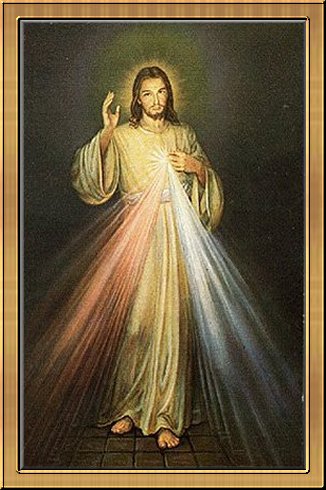







.jpg)


